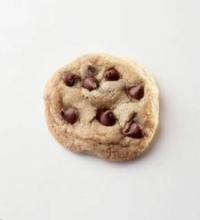User login
SAN ANTONIO – Though restriction and elimination diets have been studied for decades in the treatment of children with attention deficit hyperactive disorder, their therapeutic role and level of efficacy remain controversial in part because of blinding difficulties in dietary studies.
In a study presented at the annual meeting of the American Academy of Child & Adolescent Psychiatry Dr. Steven Pliszka of the University of Texas Health Center in San Antonio reported that among children with ADHD on a gluten- and additive-free diet, those given a daily snack inconsistent with the prescribed diet still showed behavioral improvement over 5 weeks.
In the study, Dr. Pliszka and colleagues randomized 29 children with ADHD, ages 8-12, to a restricted diet with a daily cookie or with a snack consistent with the diet. Stimulants were the only psychotropic medications allowed in the study. “The hypothesis was that if you’re on the restriction diet and getting better, and you get a snack that has gluten in it, you ought to deteriorate,” Dr. Pliszka said in an interview. “What we thought we would see was only one group would improve, but we saw improvement across the board.” This could mean that one cookie was not enough to corrupt the beneficial effects of the diet, he said, or that something besides the diet, such as a placebo effect, was responsible for the children’s improvement.
ADHD behavioral rating scores for both groups of children improved over the course of the 5 weeks; however, neither group improved faster. Children were also screened on functional magnetic resonance imaging (fMRI) at baseline and 5 weeks to evaluate activity in the ventral striatum related to images of high and low-calorie foods. Because not enough children were available for fMRI screening at the study’s end, Dr. Pliszka and colleagues combined the cohorts for analysis. Both groups also showed imaging evidence of increased activity in the ventral striatum, the part of the brain associated with reward response, and where activity is known to be lower in children with ADHD.
The researchers found regional activation within the ventral striatum to be significantly greater at follow-up than baseline for the cohort as a whole.
Dr. Pliszka said that the findings required more follow-up to understand.
“What we need to do for a follow-up study is get these groups to separate. If it is a low-calorie gluten free [diet], then probably we need to get the snack to be even more inconsistent than it was in this study, or give it several times a day, for example.”
If more snacks produced different results, “we could say it’s a dose-response issue. If there’s still no difference, we’d be able to say the diet’s not working. Because you give people all the bad stuff, but they think they’re getting the good stuff and they do ok, it’s clearly not the diet. “
Dr. Pliszka disclosed research support from Shire and Purdue Pharma and a consulting relationship with Ironshore Pharma. His co-authors in the study disclosed no conflicts of interest.
SAN ANTONIO – Though restriction and elimination diets have been studied for decades in the treatment of children with attention deficit hyperactive disorder, their therapeutic role and level of efficacy remain controversial in part because of blinding difficulties in dietary studies.
In a study presented at the annual meeting of the American Academy of Child & Adolescent Psychiatry Dr. Steven Pliszka of the University of Texas Health Center in San Antonio reported that among children with ADHD on a gluten- and additive-free diet, those given a daily snack inconsistent with the prescribed diet still showed behavioral improvement over 5 weeks.
In the study, Dr. Pliszka and colleagues randomized 29 children with ADHD, ages 8-12, to a restricted diet with a daily cookie or with a snack consistent with the diet. Stimulants were the only psychotropic medications allowed in the study. “The hypothesis was that if you’re on the restriction diet and getting better, and you get a snack that has gluten in it, you ought to deteriorate,” Dr. Pliszka said in an interview. “What we thought we would see was only one group would improve, but we saw improvement across the board.” This could mean that one cookie was not enough to corrupt the beneficial effects of the diet, he said, or that something besides the diet, such as a placebo effect, was responsible for the children’s improvement.
ADHD behavioral rating scores for both groups of children improved over the course of the 5 weeks; however, neither group improved faster. Children were also screened on functional magnetic resonance imaging (fMRI) at baseline and 5 weeks to evaluate activity in the ventral striatum related to images of high and low-calorie foods. Because not enough children were available for fMRI screening at the study’s end, Dr. Pliszka and colleagues combined the cohorts for analysis. Both groups also showed imaging evidence of increased activity in the ventral striatum, the part of the brain associated with reward response, and where activity is known to be lower in children with ADHD.
The researchers found regional activation within the ventral striatum to be significantly greater at follow-up than baseline for the cohort as a whole.
Dr. Pliszka said that the findings required more follow-up to understand.
“What we need to do for a follow-up study is get these groups to separate. If it is a low-calorie gluten free [diet], then probably we need to get the snack to be even more inconsistent than it was in this study, or give it several times a day, for example.”
If more snacks produced different results, “we could say it’s a dose-response issue. If there’s still no difference, we’d be able to say the diet’s not working. Because you give people all the bad stuff, but they think they’re getting the good stuff and they do ok, it’s clearly not the diet. “
Dr. Pliszka disclosed research support from Shire and Purdue Pharma and a consulting relationship with Ironshore Pharma. His co-authors in the study disclosed no conflicts of interest.
SAN ANTONIO – Though restriction and elimination diets have been studied for decades in the treatment of children with attention deficit hyperactive disorder, their therapeutic role and level of efficacy remain controversial in part because of blinding difficulties in dietary studies.
In a study presented at the annual meeting of the American Academy of Child & Adolescent Psychiatry Dr. Steven Pliszka of the University of Texas Health Center in San Antonio reported that among children with ADHD on a gluten- and additive-free diet, those given a daily snack inconsistent with the prescribed diet still showed behavioral improvement over 5 weeks.
In the study, Dr. Pliszka and colleagues randomized 29 children with ADHD, ages 8-12, to a restricted diet with a daily cookie or with a snack consistent with the diet. Stimulants were the only psychotropic medications allowed in the study. “The hypothesis was that if you’re on the restriction diet and getting better, and you get a snack that has gluten in it, you ought to deteriorate,” Dr. Pliszka said in an interview. “What we thought we would see was only one group would improve, but we saw improvement across the board.” This could mean that one cookie was not enough to corrupt the beneficial effects of the diet, he said, or that something besides the diet, such as a placebo effect, was responsible for the children’s improvement.
ADHD behavioral rating scores for both groups of children improved over the course of the 5 weeks; however, neither group improved faster. Children were also screened on functional magnetic resonance imaging (fMRI) at baseline and 5 weeks to evaluate activity in the ventral striatum related to images of high and low-calorie foods. Because not enough children were available for fMRI screening at the study’s end, Dr. Pliszka and colleagues combined the cohorts for analysis. Both groups also showed imaging evidence of increased activity in the ventral striatum, the part of the brain associated with reward response, and where activity is known to be lower in children with ADHD.
The researchers found regional activation within the ventral striatum to be significantly greater at follow-up than baseline for the cohort as a whole.
Dr. Pliszka said that the findings required more follow-up to understand.
“What we need to do for a follow-up study is get these groups to separate. If it is a low-calorie gluten free [diet], then probably we need to get the snack to be even more inconsistent than it was in this study, or give it several times a day, for example.”
If more snacks produced different results, “we could say it’s a dose-response issue. If there’s still no difference, we’d be able to say the diet’s not working. Because you give people all the bad stuff, but they think they’re getting the good stuff and they do ok, it’s clearly not the diet. “
Dr. Pliszka disclosed research support from Shire and Purdue Pharma and a consulting relationship with Ironshore Pharma. His co-authors in the study disclosed no conflicts of interest.
AT THE AACAP ANNUAL MEETING
Key clinical point:An inconsistent snack food does not appear to alter effects of restricted diet in children with ADHD.
Major finding: Children with ADHD who were allowed a cookie inconsistent with their restricted diets still improved on behavioral scores as well as those who received a diet-consistent snack; no significant differences found in rate and degree of improvement between groups.
Data source: A non-blinded trial enrolling 29 children and randomizing them to a restricted calorie and gluten diet plus a consistent or inconsistent snack, behavioral measures and fMRI taken at baseline and 5 weeks.
Disclosures: Lead investigator disclosed financial relationships with Shire, Purdue Pharma and Ironshore Pharma.

